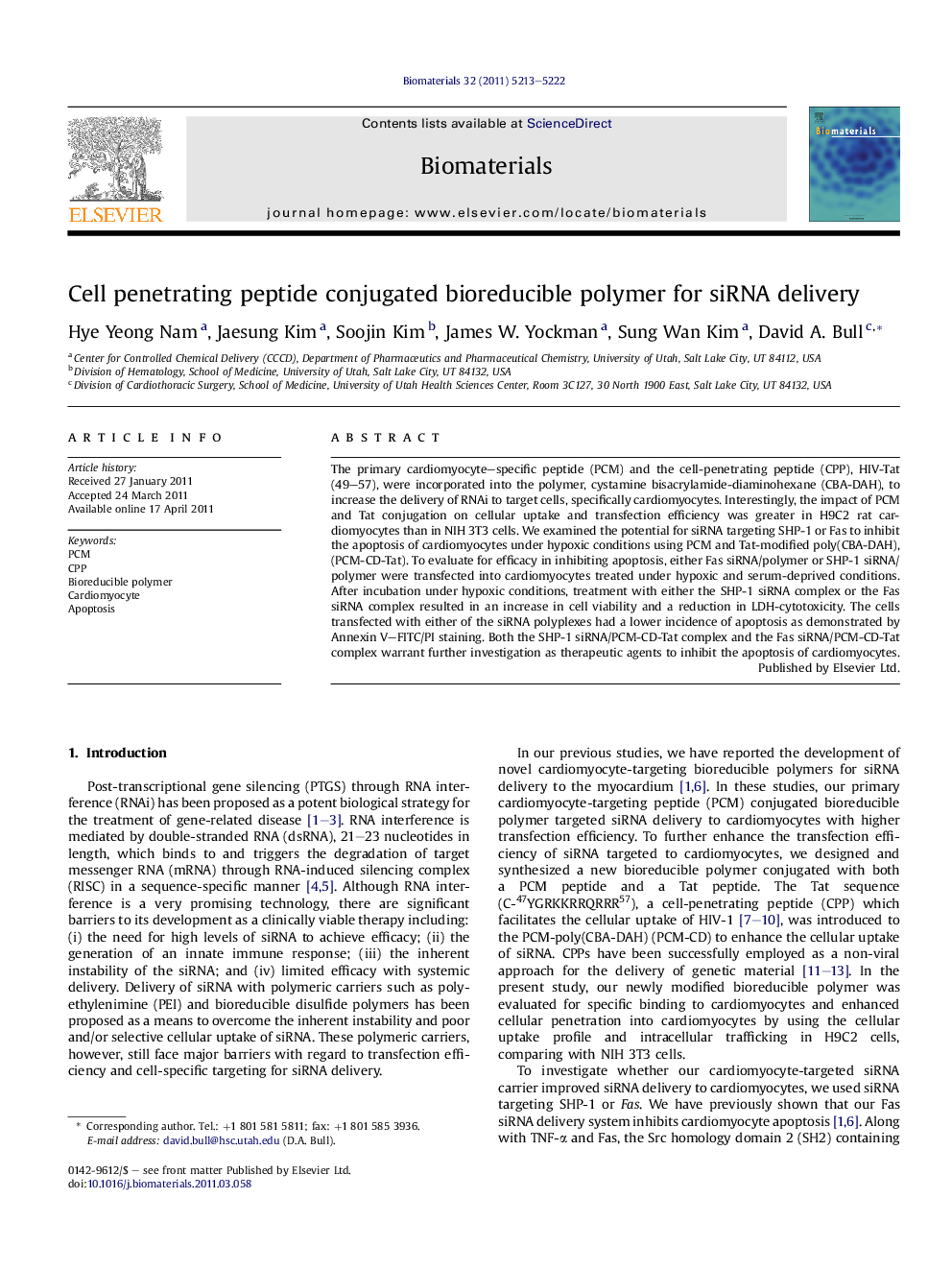| Article ID | Journal | Published Year | Pages | File Type |
|---|---|---|---|---|
| 7358 | Biomaterials | 2011 | 10 Pages |
The primary cardiomyocyte–specific peptide (PCM) and the cell-penetrating peptide (CPP), HIV-Tat (49–57), were incorporated into the polymer, cystamine bisacrylamide-diaminohexane (CBA-DAH), to increase the delivery of RNAi to target cells, specifically cardiomyocytes. Interestingly, the impact of PCM and Tat conjugation on cellular uptake and transfection efficiency was greater in H9C2 rat cardiomyocytes than in NIH 3T3 cells. We examined the potential for siRNA targeting SHP-1 or Fas to inhibit the apoptosis of cardiomyocytes under hypoxic conditions using PCM and Tat-modified poly(CBA-DAH), (PCM-CD-Tat). To evaluate for efficacy in inhibiting apoptosis, either Fas siRNA/polymer or SHP-1 siRNA/polymer were transfected into cardiomyocytes treated under hypoxic and serum-deprived conditions. After incubation under hypoxic conditions, treatment with either the SHP-1 siRNA complex or the Fas siRNA complex resulted in an increase in cell viability and a reduction in LDH-cytotoxicity. The cells transfected with either of the siRNA polyplexes had a lower incidence of apoptosis as demonstrated by Annexin V–FITC/PI staining. Both the SHP-1 siRNA/PCM-CD-Tat complex and the Fas siRNA/PCM-CD-Tat complex warrant further investigation as therapeutic agents to inhibit the apoptosis of cardiomyocytes.
